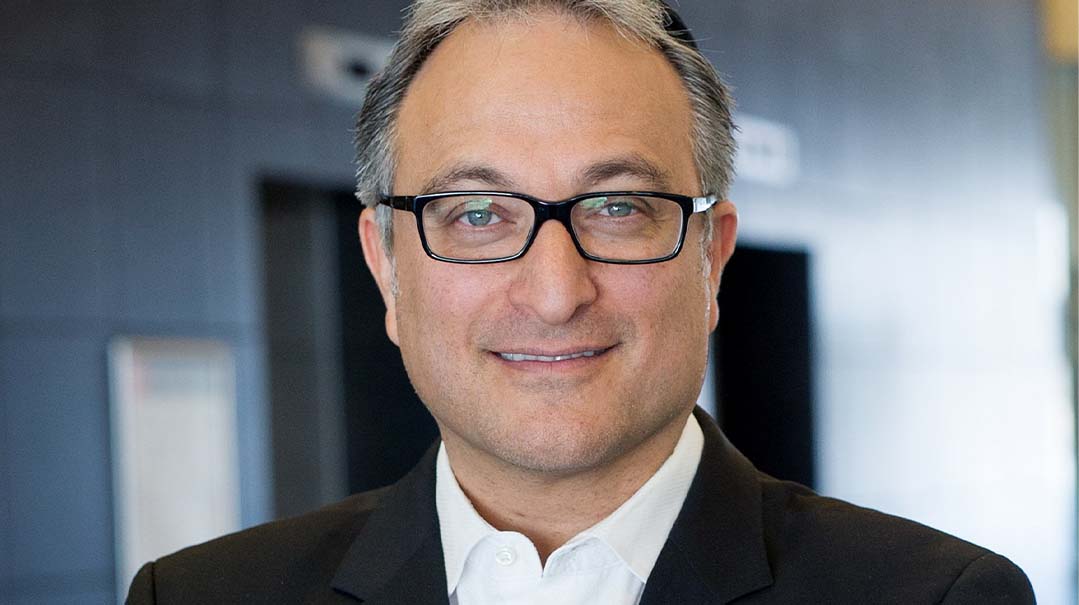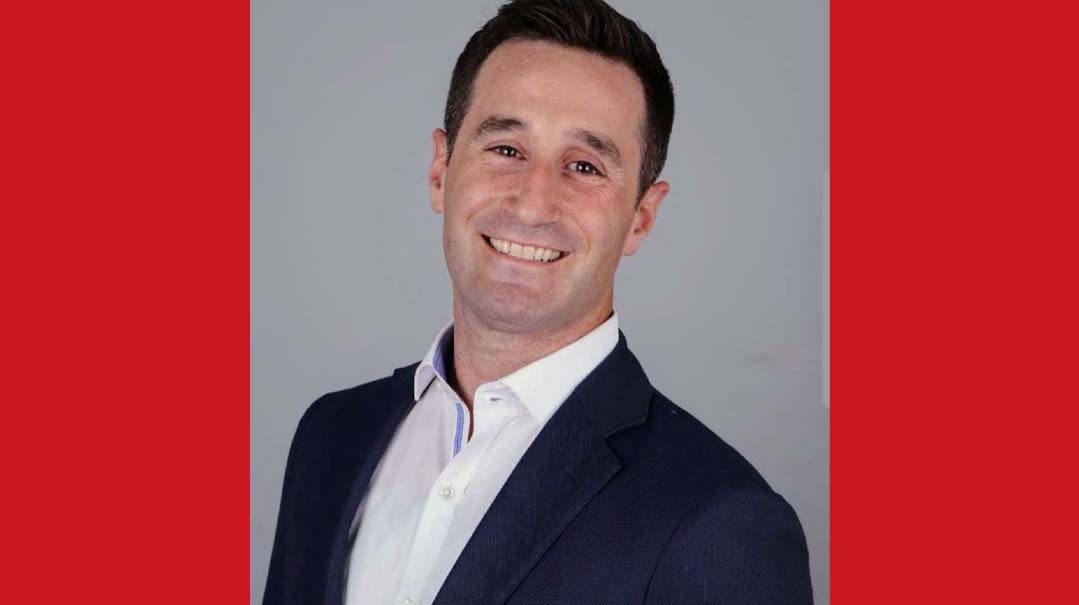Work/Life Solutions with Ben Wiener


Who: Ben Wiener, managing partner at Jumpspeed Ventures
What: In 2013, Ben founded his venture capital fund, focusing on early-stage start-ups within the resurgent Jerusalem start-up ecosystem — and already invested in 17 of them.
Where: After receiving his BA in economics from Yeshiva University, semichah from RIETS, and a JD from Columbia Law School, Ben served as a clerk on Israel’s Supreme Court for Justice Yitzchak Zamir, and then as a corporate lawyer at Kramer Levin in New York, and Sharir, Shiv, & Co. in Tel Aviv. In 1999, Ben became immersed in Jerusalem’s nascent start-up scene, cofounding a number of tech companies. During this time, Ben also served as a vice president at IDT Corp.
Why: Ben is a mentor to many Jerusalem entrepreneurs, including me. We met multiple times since I moved to Israel, and I always appreciated his guidance and professional insight. I also respect the way he juggles his business endeavors with his nonprofit involvement (OU Israel, MadeinJLM, etc.), Torah learning, and large family.
3 of 9 What do you do to relax, recharge, or simply have fun? How do you make time for that, and how often?
I think balance is a lofty goal — I cannot by any means claim to have achieved it, rather I feel like I’m constantly pursuing it.
I am very fortunate to live and work in Jerusalem, which means I don’t have to travel as much as others, either out of the city or out of the country. Most mornings and evenings, I am home with my wife and kids, which was certainly not the case when I started my career as a corporate lawyer in New York City.
I am fiercely committed to two main nonwork activities: running and reading. I tend to take both to an extreme: I run marathons, and I read voraciously, about ten books a month, sometimes more. I think I saw Elon Musk quoted as saying that exercise is his “hardware upgrade” and intellectual growth is his “software upgrade.” That resonates with me, so I fight with my schedule to make time for both.
I even hesitate to call these activities “nonwork” because I do them to make me better professionally. I think better and I’m more relaxed and productive when I’m in shape, and the reading part requires no explanation. Of the most successful leaders in history, many were committed readers, able to easily cite the important works that most influenced them. In our parlance, you need to make a seder (fixed daily time) for these activities, because life and work will easily distract you. I do that religiously.
In fact, running was an impetus of sorts in my Torah growth too. I had always resolved to complete Shas, as my father and grandfather had, and never got around to doing daf yomi. One day, I was finishing a run, shooting up a hill near my house in Jerusalem. Passing me, going downhill just as fast, was a young man with a sefer hustling toward the Erloi beit medrash. I thought to myself: “He’s probably thinking to himself: “Anu ratzim v’heim ratzim…” I got home, showered, and popped open the daf yomi — in the middle of the cycle — and seven and a half years later made my own siyum.
The lesson? You can always find more time if you have the motivation.
4 of 9 What would you say was your most resounding failure? What did you take away from that experience?
Recounting my failures could be a whole article — no, a book in itself. I am the king of failures. And that’s great, on some level, because you learn more from failures than from successes, and I take great pains to do just that. I’ve made many mistakes but I rarely make the same one twice.
I fail every day and if I can’t easily point to recent failures, I know I’m not working hard enough. Wayne Gretzky said, “You miss 100 percent of the shots you don’t take.” Kierkegaard wrote: “To dare is to lose one’s footing momentarily, not to dare is to lose oneself.”
So long as the process was correct, it’s never a total “failure” simply because it didn’t produce the hoped-for result. Those are the “good” failures.
Still, I’ve definitely had some glorious “bad” failures, where both result and process weren’t right. Some of those have stung. My very first start-up was in that category: I was both overeager and misled, and rushed headlong into a business relationship that was toxic, misrepresented, and imploded quickly. My due diligence wasn’t faulty — it was simply nonexistent.
Even in that case, the epic failure taught me so much about what not to do and what doesn’t work in the start-up world, that much of that negative experience has allowed me to make better decisions to this day. I’d always wondered if I should’ve gone for a business degree instead of a law degree, and when that first start-up imploded, I told my wife, “Honey, I just got my MBA.”
6 of 9 What is the most inspiring feedback you’ve ever received? Did that impact what you did next?
When I was raising money for Jumpspeed’s initial fund, I had a series of meetings with a very successful businessman. He was tough and challenging, perhaps even a bit arrogant, but keenly interested in my approach and opportunity. After many rounds of talks, he scheduled what I was told would be our “final meeting.” From the tone of our prior interactions and his serious interest, I was feeling fairly confident. After I again covered all of the highlights, he leaned back, folded his arms and said: “Ben, I like what you’re doing. I get it. But I’m not going to invest.”
Everyone in the room stared at him. “Want to know why?” he asked, with a grin.
“Sure,” I replied (without a grin).
“You’re too nice. Nice guys can’t succeed in business.”
This feedback was “incisive” in that it cut me like a knife. I gathered my thoughts and told him that I respectfully disagreed — I wasn’t “too nice” and I certainly didn’t believe “nice guys can’t succeed.”
Yet I believe one has to consider any feedback, however painful, so I resolved to explore the claim that “nice guys can’t succeed.” I read numerous Harvard Business Review articles about academic research on the topic. I read Adam Grant’s fantastic book Give and Take: A Revolutionary Approach to Success. And I looked into my own fund-raising and investment activity and tried to map instances of “nice” behavior to identifiable business results.
My research and my own empirical evidence clearly showed when and how certain types of “nice” activity lead directly to significant positive business outcomes. This emboldened me to keep doing things “my way” and gave me the third-party-validated data that I could share with others in the future.
7 of 9If you were asked to deliver a TED Talk that would be watched by 50 million people, what topic would you choose to speak about? Why?
Easy: Gratitude.
My teacher, Rabbi Dr. Aaron Levine a”h, has a chapter in one of his books titled “Hakkarat Hatov and the Making of the Moral Personality.” He uses economic theory (not philosophy) to analyze how gratitude is the foundation of interpersonal morals.
By showing gratitude to others for what they’ve done for you, you recognize that you don’t have all the power or deserve all the credit (“kochi v’otzem yadi…”). You maintain humility and you show empathy for your fellow man who helped you out.
Gratitude isn’t weakness, rather strength — it strengthens one’s sense of self by causing him to recognize that he is worthy of being helped. Only one with a strong sense of self can share credit with others.
By contrast, self-promoting narcissism reflects and reinforces a poor sense of self — the narcissistic person is so insecure that he needs to soak up all of the praise, attention, and credit himself.
The coolest part about gratitude and the “pay-it-forward” approach to life? It absolutely pays tangible dividends in This World, not just in the World to Come. I have experienced countless examples of this in my own career and I love sharing this motivational message and examples of “pay-it-forward” paying back.
9 of 9 If you were advising a young man/woman hoping to launch a career as an entrepreneur, which “do’s” and “don’ts” would you share?
While it is important to “dare” and take chances, young people often romanticize entrepreneurial successes and aren’t as aware of the (more prevalent) downside. When I advise starry-eyed entrepreneur wannabes, I take the approach that Chazal recommend regarding prospective geirim — welcome them, but make sure they know what they’re getting into.
It’s important to talk tachlis — to make sure they’re aware of the many risks in starting a new venture, and what pursuing their dream might lead to, both for them and those around them. I ask: Are you ready for the psychological roller coaster? Are you (and those around you) emotionally and financially prepared for the possibility (probability?) of failure? What steps have you taken, or experience or expertise do you have, that lead you to believe your idea can beat the odds? Risks are great, but only when you have some sort of significant edge.
The start-up journey can start off looking like an easy few-day road trip, but more often ends up like a tough, 40-year journey through a desert.
Do it if you think you have an edge, if you have a burning passion, and if you and those around you are prepared for failure.
Don’t do it if you aren’t able or willing to fail, or just because it seems exciting and fun.
(Originally featured in Mishpacha, Issue 724)
Oops! We could not locate your form.












